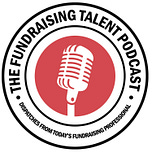My conversation today with Al begs the question of whether now is the time for a new case for support which, perhaps, begins with having written one for ourselves. The bosses are calling everyone back to the office and no doubt insisting that we raise more money than we did last year, while opportunities to work elsewhere abound and donors are not giving as they did pre-pandemic. With all this movement and change, now is a great time to ask ourselves what we believe about fundraising; what motives we believe compel the decisions our donors make; and, most importantly, what will ensure that these relationships can be sustained for many gifts to come. Rather than a case for support, perhaps we owe ourselves a case for fundraising; not something one of the wizards of contemporary fundraising wrote, but something that articulates in our own words why our work matters.
These are the types of questions Al and I pondered today on The Fundraising Talent Podcast. Al insists that fundraisers have to make a stronger case for fundraising to ensure that leaders recognize and appreciate the role we play in an organization. Al points out that many of our boards and bosses expect fundraising to just be a quick fix and couldn’t care less how we raise it. Arguably, this disregard for fundraising in theory is what drives the myriad of disappointments we encounter in practice. Every fundraiser owes themselves an employer who prioritizes genuine relationships ahead of the ask and, rather than expecting us to merely sell commodities, ensures that the organization has the advantage of meaningful gifts.
As always, we are especially grateful to our friends at CueBack for sponsoring The Fundraising Talent Podcast. And, if you’d like to download Responsive’s latest edition of Carefully & Critically, just click here.













Share this post